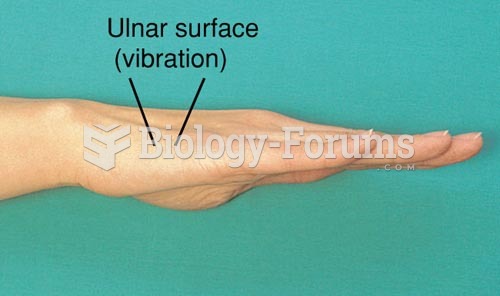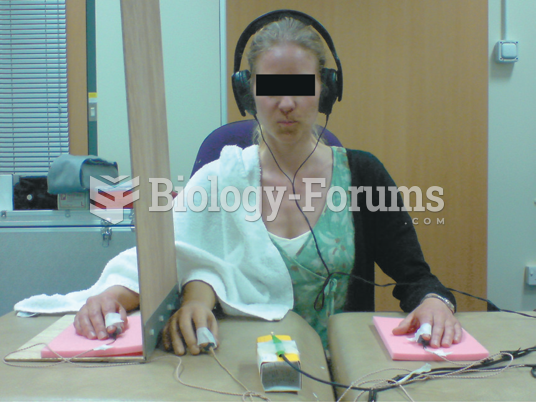|
|
|
The effects of organophosphate poisoning are referred to by using the abbreviations “SLUD” or “SLUDGE,” It stands for: salivation, lacrimation, urination, defecation, GI upset, and emesis.
Astigmatism is the most common vision problem. It may accompany nearsightedness or farsightedness. It is usually caused by an irregularly shaped cornea, but sometimes it is the result of an irregularly shaped lens. Either type can be corrected by eyeglasses, contact lenses, or refractive surgery.
By definition, when a medication is administered intravenously, its bioavailability is 100%.
In ancient Rome, many of the richer people in the population had lead-induced gout. The reason for this is unclear. Lead poisoning has also been linked to madness.
People who have myopia, or nearsightedness, are not able to see objects at a distance but only up close. It occurs when the cornea is either curved too steeply, the eye is too long, or both. This condition is progressive and worsens with time. More than 100 million people in the United States are nearsighted, but only 20% of those are born with the condition. Diet, eye exercise, drug therapy, and corrective lenses can all help manage nearsightedness.
 In American Progress (1872), John Gast depicts a feminized (and eroticized) America moving westward,
In American Progress (1872), John Gast depicts a feminized (and eroticized) America moving westward,
 Squeeze posterior leg muscles. Apply along muscles from knee to ankle. Use same hand position as in ...
Squeeze posterior leg muscles. Apply along muscles from knee to ankle. Use same hand position as in ...





